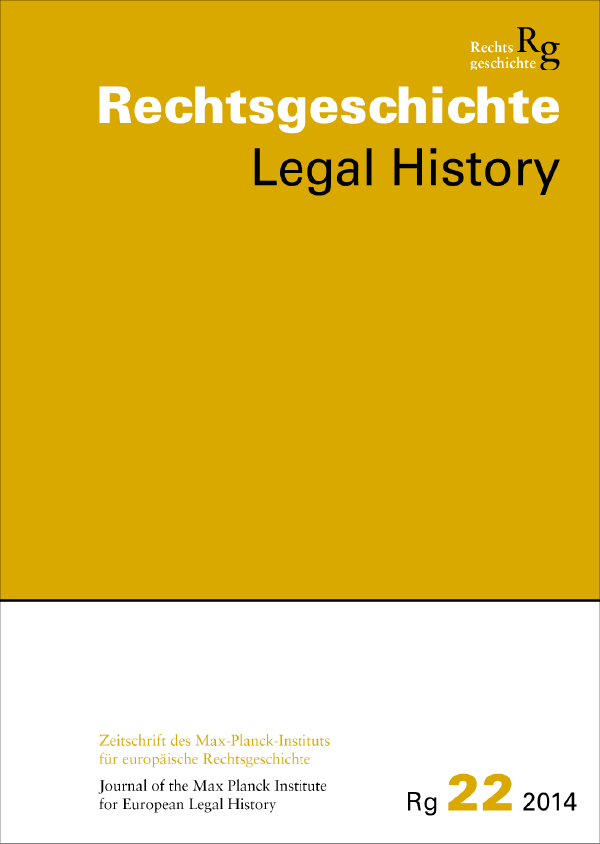International Law and Translation in the 19th century
DOI:
https://doi.org/10.12946/rg22/214-226Abstract
The article aims to investigate, under the aspect of translation, the process of legal appropriation and reproduction of international law during the course of the 19th century. An occidental understanding of translation played an important role in the so-called process of universalization in the 19th century, as it made the complexity of global circulation of ideas invisible. Approaches proposed by scholars of Postcolonial, Cultural and Translation Studies are useful for re-reading histories of the circulation of European ideas, particularly the international law doctrines, from a different perspective. The great strides made in Translation and Cultural Studies in the last decades, as well as the discernment practiced in the scholarship of Postcolonial Studies, are important for a broader and more differentiated understanding of the processes of appropriation and reproduction of the doctrines of international law during the 19th century. The present article begins by tracing the connection between translation and universalization of concepts in 19th century international law; after a short excursus on the Western idea of translation, the attention is focused on the translation of international law textbooks. The conclusive section is dedicated to a comparison between Emer de Vattel’s Droit des gens and Andrés Bello’s Principios de Derecho de Jentes.
Downloads
Veröffentlicht
Zitationsvorschlag
Ausgabe
Rubrik
Lizenz
Copyright (c) 2014 Autor/in

Dieses Werk steht unter einer Creative Commons Namensnennung - Nicht-kommerziell - Keine Bearbeitung 3.0 International -Lizenz.





